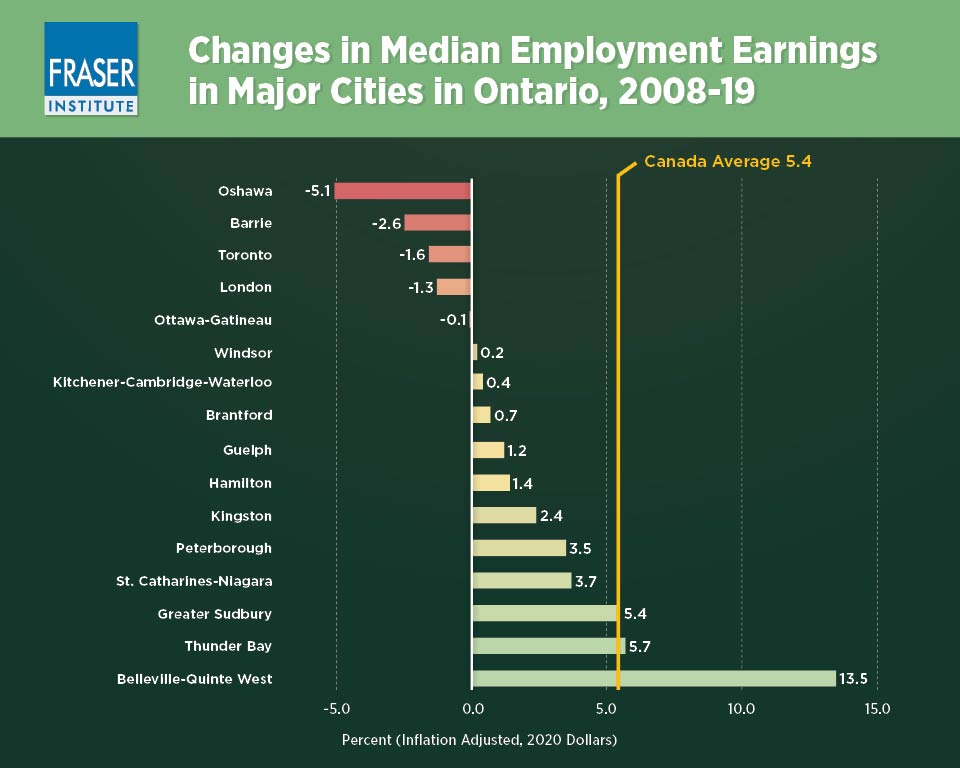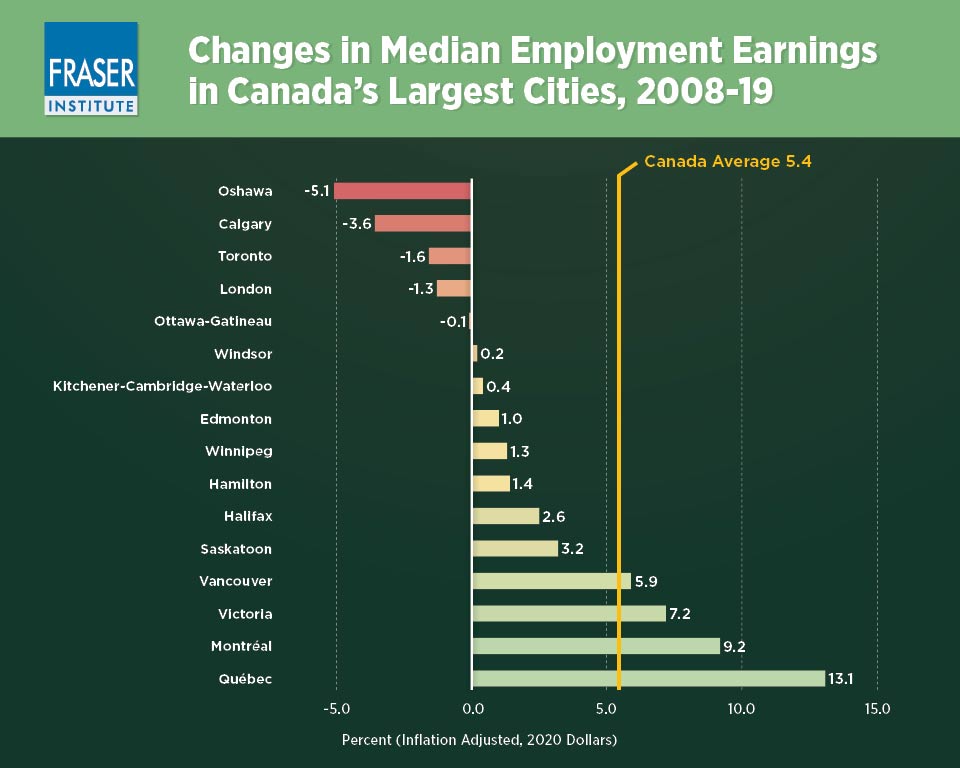Major cities in Ontario, as defined by Statistics Canada’s Census Metropolitan Areas (CMAs), rank among the lowest in the country for growth in median employment income from 2008-2019, finds a new study released today by the Fraser Institute, an independent, non-partisan Canadian public policy think-tank.
“Cities across Canada vary greatly in their employment incomes, but some regions and provinces fare better than others,” said Ben Eisen, a senior fellow with the Fraser Institute and co-author of Analysis of Changes in Median Employment Income in Canada’s Census Metropolitan Areas, 2008-2019.
A recent study published by the Fraser Institute compared major cities in terms of their median employment income — wages, salaries and commissions from paid and net self-employment income before taxes and transfers — across Canada’s 41 census metropolitan areas for the year 2019, the last year before the COVID-19 pandemic.
Analysis of Changes in Median Employment Income in Canada’s Census Metropolitan Areas, 2008-2019 ranks the same 41 cities by their rate of growth in median employment income, using data from 2008 to 2019.
The median employment income growth, in inflation adjusted dollars, of all of Canada was 5.4 per cent.
The study found that out of six CMAs that experienced negative median employment growth, five were in Ontario, including London (-1.3 per cent) and Toronto (-1.6 per cent). Indeed, Oshawa recorded the largest decline during this period of -5.1 per cent. In addition, Ottawa-Gatineau, which recorded the highest level of median employment income as of 2019 essentially recorded zero growth in median employment income over this period after adjusting for inflation.
“Several major cities in Ontario experienced steep declines in median employment income during the 2008/09 recession, and the recovery after that was tepid,” Eisen commented.

The only other major Canadian city that experienced negative growth in median employment income was Calgary (-3.6 per cent). The study notes that several of the largest cities (including Edmonton, Regina, and Saskatoon) in resource-intensive regions of the country also fared poorly in employment income growth in the second half of the 2010s.
Alternatively, a number of major cities, particularly several in Quebec that recorded comparatively low levels of median employment income in 2019 experienced fairly high rates of growth in employment income during this period, indicating they were catching up to the national average.





